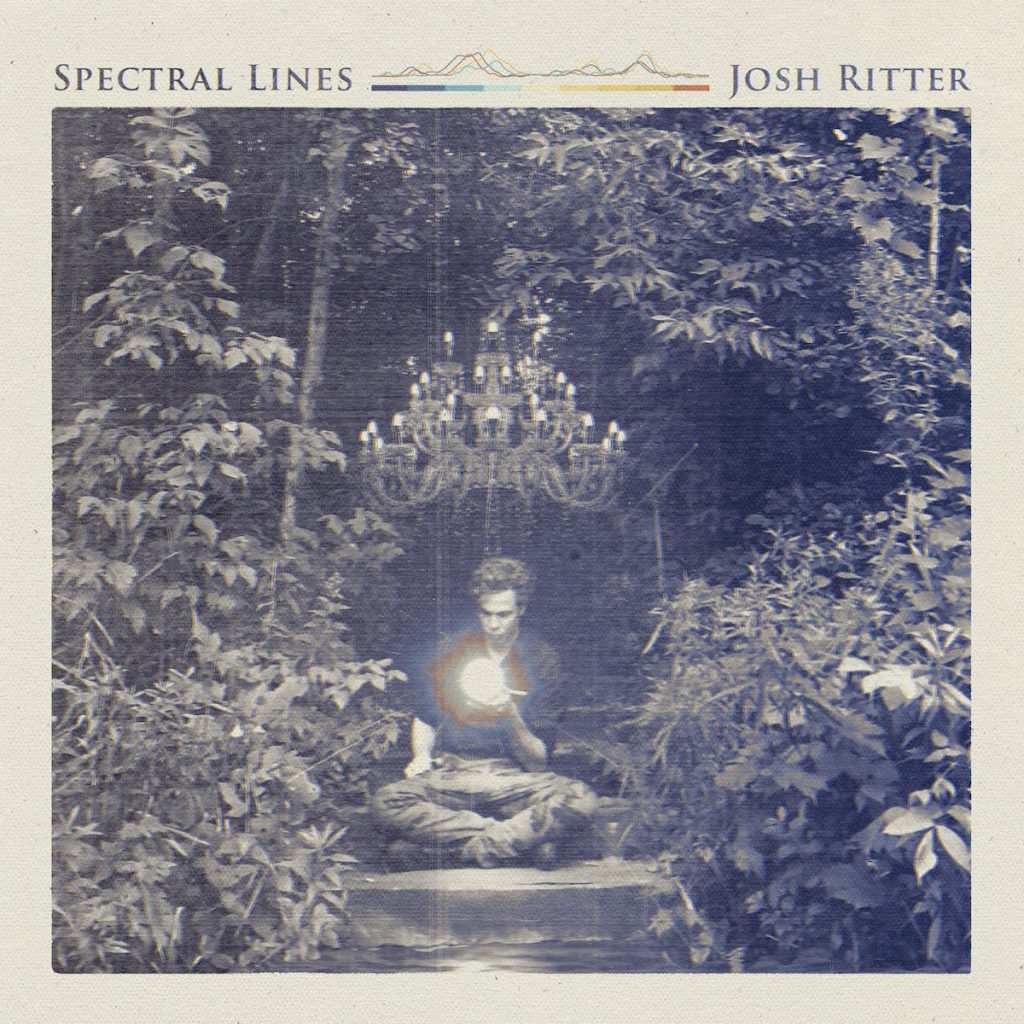ALBUM REVIEW: Hope Hangs Around on Josh Ritter’s Atmospheric ‘Spectral Lines’

In the last nearly 25 years, Josh Ritter has produced an oeuvre defined by thoughtful metaphors that ring truer than truth, all while expressing the constant sense that he is searching for something bigger than the self, and maybe bigger than the world. With his 11th album, Spectral Lines, Ritter never asserts that the search is done — far from it — but explores the same big ideas with questions of what it means that everyone and everything are somehow connected.
Narratively, Spectral Lines reflects the atmospheric side of Ritter’s discography, focused less on stories and more on moods and images. Sonically, he — along with producer and frequent bandmate Sam Kassirer — cultivated a sound that leaves plenty of room for space and contemplation between the lines. Many of the transitions between songs hiss and burble into each other, needling an invisible but noticeable thread between them. That buzzing weirdness especially flickers to life during the tumultuous ending of “Horse No Rider.” After a final chorus of “Horse no rider coming through / I’m coming,” Ritter and the band let loose a sound somewhere between a forgotten transistor radio thundering on a windowsill and a giant horse neighing at the setting sun.
At the same time, many of the songs lift the listener to sing along. This tension begins neatly with “Sawgrass,” a spoken-word piece that ends with the line “she’s one in a billion, but then so are you,” a moment that will move listeners’ lips to whisper along in thanks. “For Your Soul” follows, which shakes with singalong potential in its exhortations to do what is right.
“For Your Soul” ends with a flourishing a cappella chorus and slips right into the stunning “Black Crown,” which opens with, “Here comes that feeling again / that old black magic rolling in,” a callback to “Old Black Magic” from Ritter’s 2019 album, Fever Breaks. “Black Crown” is a sensual song laden with imagery and metaphors; Ritter references bergamot, traditionally a symbol of self-authority, and juxtaposes it with a golden wall and a black crown, suggesting perhaps that such independence comes at a cost.
On the haunting “Whatever Burns Will Burn,” Ritter again reflects on cost, this time of love. His voices echoes as though in a cave, tangled with piano and matched by Joelle Lurie’s soaring operatic voice, and eventually the narrator acknowledges and accepts that love is worth the burning. He reasserts love’s value on the resonant “In Fields,” a song that features Ritter’s gift for piling words into a single flowing line before folding into quiet insights.
The album ends with its best song, the cautiously hopeful “Someday.” It calls to mind earlier Ritter songs “All Some Kind of Dream” and “Thin Blue Flame,” thick with hope that burns in the darkness. He beseeches the audience to “throw both arms / ’round the whole world / and the ones you love,” calls for the change that needs to happen someday, and finally asks, “Will it be today?”.
These songs are oblique, felt things more than easily known; the result is a collection that encourages listeners to engage as much with themselves as with the songs. Ultimately, Ritter weaves a hopeful tapestry that encourages listeners to sit with each other in introspection, but not to forget to sing along.
Josh Ritter’s Spectral Lines comes out April 28 via Thirty Tigers.




